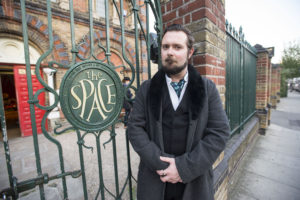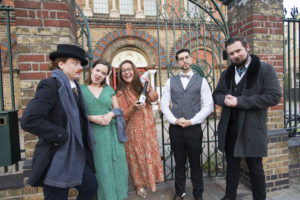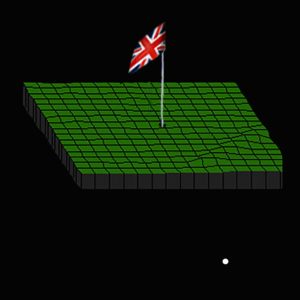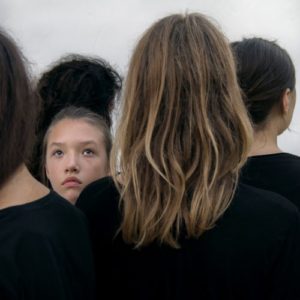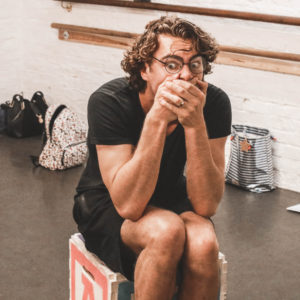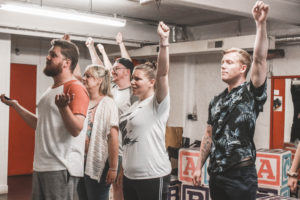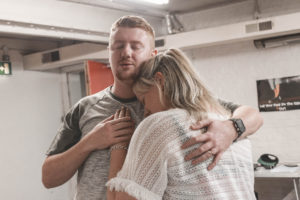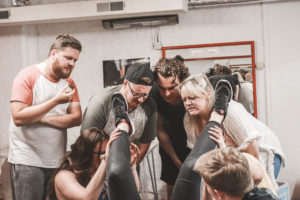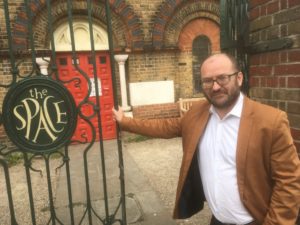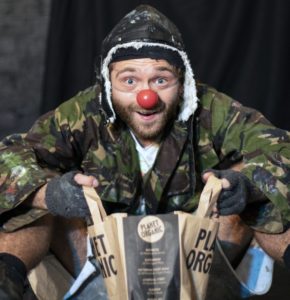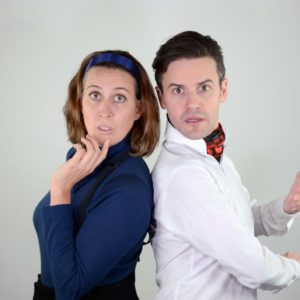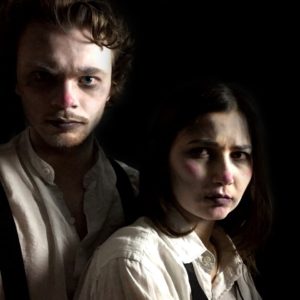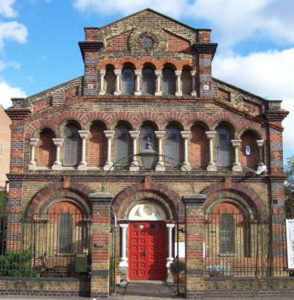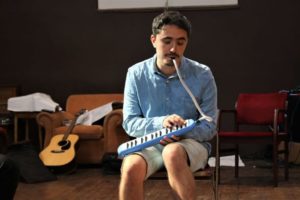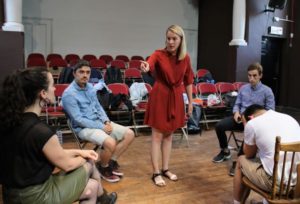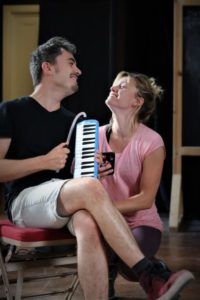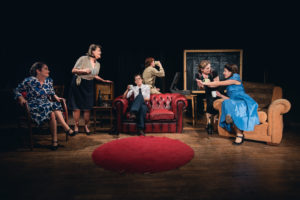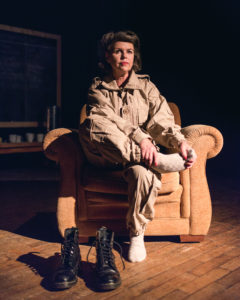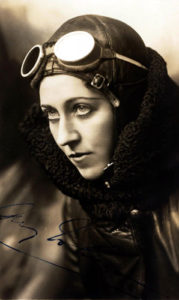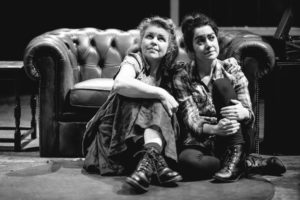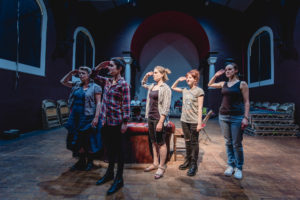Neil Sheppeck is the Artistic Director of Rising Tides, and co-director of Gasping. Rising Tides is a collective formed of experienced and emerging artists, with the aim to contribute to wider artistic engagement with climate change. We aim to advance the understanding of climate change through the delivery of new professional theatre productions and theatre events for the benefit of the public. Neil was the creative force behind Love&Madness directing and performing in over 25 UK & Eire Tours. Now he still acts and directs, but is devoting a lot of his time to developing plays and projects addressing the challenges faced by Environmental Change.
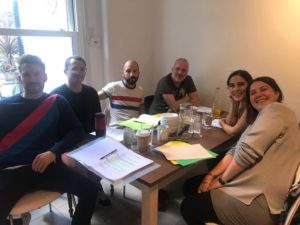
What inspired you to bring these two plays together as a double bill?
“Rising Tides is committed to artistic engagement with the Climate Crisis. Both plays look at different aspects. Cause and Effect. Gasping explores some of the the causes via satire. Between Two Waves explores some of the effects via drama. As such, they compliment each other very well.”
After almost 30 years since ‘Gasping’ ended its run at The Haymarket Theatre, why do you feel it’s important for the play to be re-shown now, in light of modern times?
“Ben Elton wrote Gasping 30 years ago as a reaction to corporate greed, and as a satire on the bottled water industry. I don’t think he anticipated how relevant his play would be three decades later. Our thirst to consume has lead to our present state of emergency. It is funny and full of corporate caricatures, which allows it to make it’s points in an enjoyable and more palatable experience.”
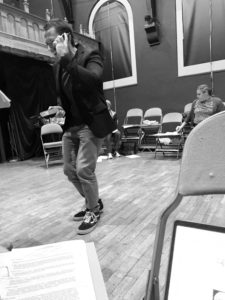
In Between Two Waves, we see Daniel struggling with the ethics of bringing a child up in this current world. What’s your opinion on this?
“I believe the answer to that can only be specific to each individual. Can any of us who understand the storm we will be weathering over the next two or three decades subject an unborn child to that? Or do we bring up children to have the strength and understanding necessary to battle that storm? Greta and the school strikes, Extinction Rebellion, etc, show the passion to deal with this, are hugely inspirational, and are a true hope for the future.”
In the description of Between Two Waves, Daniel is shown as a ‘f****d-up, neurotic climatologist’. Are there any similarities or differences you’ve found between the character in this play and Phillip or Sir Lockheart in Gasping? How has knowledge of both plays informed the direction these characters are taken in?
“Well, we’re only just about to start rehearsing, so I can’t comment on the directions of these characters by the actors and the directors through exploration. We’re all ‘f****d up’ in our own way, and there are parallels between the journeys that Daniel and Philip take, and how each of us are effected by our awareness of the storm ahead – depression, denial, anger, resignation, etc.”
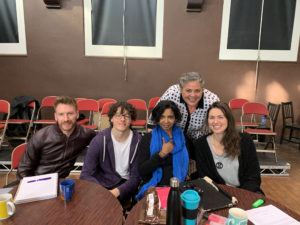
How do you feel presenting something as touching as Between Two Waves alongside something as brash as Gasping could impact an audience’s experience of the two plays?
“We all laugh. We all cry. Both allow us to give an outlet to our emotions. That’s why the theatre masks are both Comedy and Tragedy. They are intrinsically linked.”
How do you think staging both of these productions being in London, a highly polluted area of the UK, informs the importance and reception of the plays?
“I hope that the proximity of Canary Wharf will enable the messages of moral responsibility will reach out to individuals that can take a stance.”
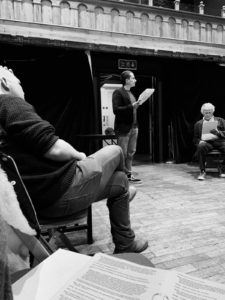
How do you feel, as a company, theatre and the arts can help with the Climate Emergency?
“The Arts have always been a powerful part of sharing ‘stories’ and what makes life worth living. I challenge anyone to say that their life isn’t enhanced by film, music, theatre, dance, art, fashion, etc. Regarding the changes that we will be facing (and already experiencing), the arts can contribute to stories being shared (flooding, migration, fires, loss of homes or biodiversity), so as to give a voice to victims, or to promote understanding for those who haven’t suffered yet. And if we fail to deal with the Climate Crisis, then the arts can be there to aid us whilst heading for extinction, in holding hands and singing whilst on that path.”

Between Two Waves
Running from October 22nd-November 15th

Gasping
Running from October 24th-November 16th
